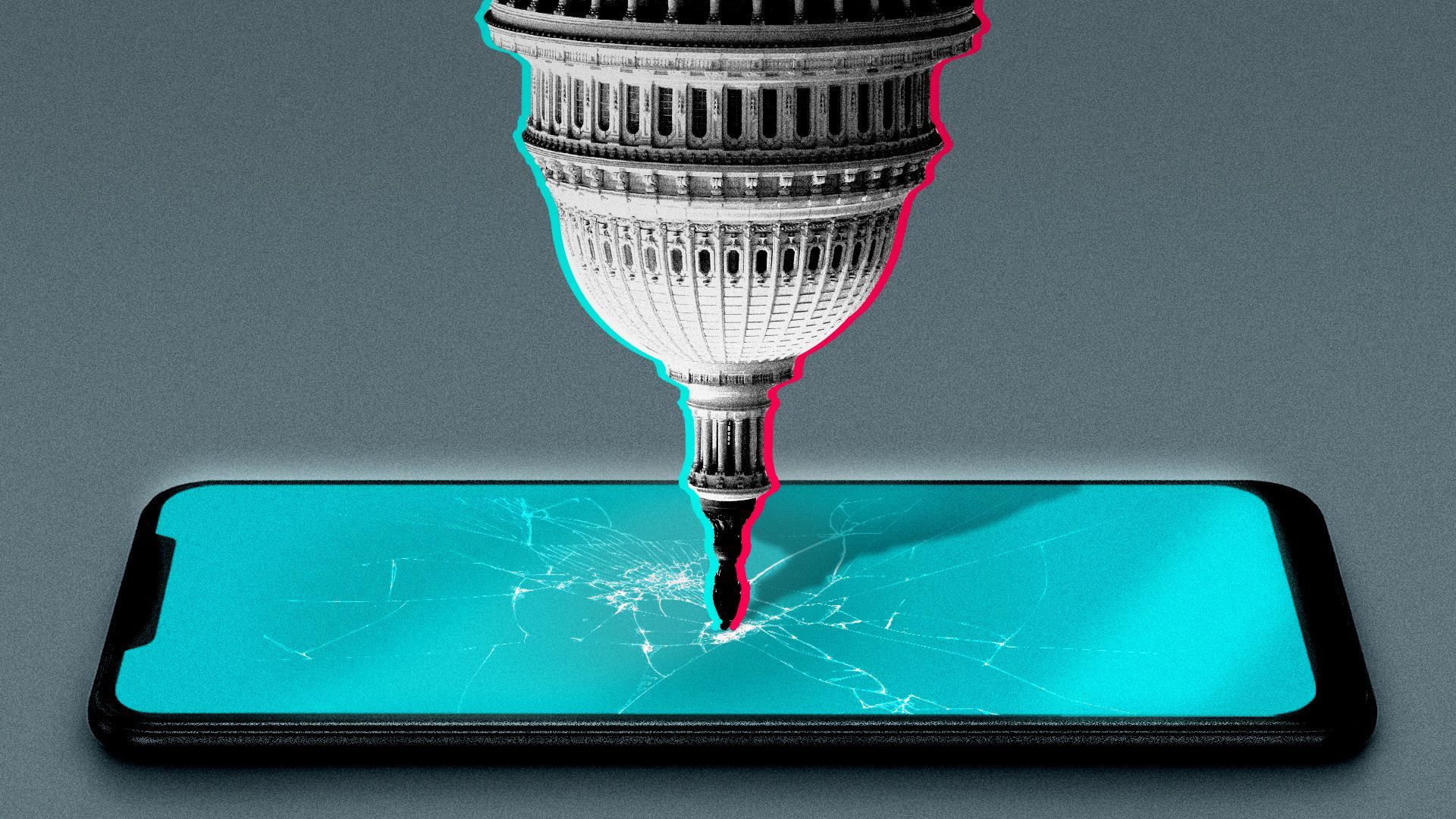Illustration: Shoshana Gordon/Axios
TikTok's future in the U.S. is most likely to be determined by the courts, rather than by politicians, executives or influencers.
Driving the news: Congress gave the social media company no quarter yesterday, in a four-hour hearing that mostly vacillated between moral panic and red scare.
- CEO Shou Zi Chew seemed unable to persuade anyone that Project Texas, the Oracle-enabled data ringfencing effort, would solve U.S. data security concerns.
- He also bricked a couple of layups, and hewed to congeniality in the face of being called a liar and told that there wasn't remaining time for responses to questions.
What comes next: The upshot was bipartisan agreement that TikTok must be bought or banned. So let's play that out…
- Parent company ByteDance is 60% owned by outside investors, including many U.S.-based venture capital firms. Its Chinese co-founders own another 20%, while the remainder is employee equity.
- At TikTok's estimated value of up to $50 billion, a buyer would need just $10 billion to buy out the founders (who have voting control). That allows for a decent-sized universe of strategic suitors, including Oracle.
- But there may still be political objections to any shareholding by Chinese residents, including TikTok employees. Sure, it's absurd and ignores how other U.S. tech companies have employees in China. But we're talking about Congress, so that's table stakes. You'd likely need a bit more cash, and an IPO becomes less likely.
- It's also worth noting that TikTok U.S. is just one piece of ByteDance, and currently an unprofitable one at that. ByteDance's founders might be willing to roll the dice, comforted by earnings from the rest of their empire.
This is where it gets really tricky. Imagine that Oracle makes a takeover offer so rich that ByteDance's founders can't refuse. Maybe it even throws in some of Larry Ellison's magic immortality beans.
- The Chinese government could simply say no, perhaps using a 2020 law designed to protect intellectual property. Perhaps Beijing really does want all that user data, or just doesn't want to publicly capitulate to Washington. The reason is less important than the ruling.
- Some House members yesterday argued that China's ability to block a merger is evidence that ByteDance is controlled by the CCP, but it's really just evidence that a country can act in its perceived national interest to block divestitures (the U.S. government has similar abilities, albeit with much more of an adversarial legal process).
So now TikTok is in a position where the U.S. government insists it be sold or banned, but China won't allow it.
- Its only option, short of shutting down or praying for the political storm to pass, is to fight the ban demand in court.
- And there is some precedent here. Back when former President Trump tried to ban TikTok, the company sued and won.
- President Biden may have a stronger case this time, and one backstopped by a new law Congress is on the verge of passing, but the final venue remains the same.
The bottom line: TikTok isn't going away any time soon, nor is it likely to have a new owner. But a lot of lawyers will be kept very busy.
Source: Read Full Article
-
Families face another 12 months of the cost-of-living crisis
-
Government borrowing hit RECORD high of £16.7bn last month
-
‘I was KO’d by "UK’s hardest man" so vowed revenge – but soon regretted it’
-
‘My dive to the Titanic was cut short – I feel like I won Russian roulette’
-
‘Multiple people attacked’ after ‘man with machete’ roams the streets


